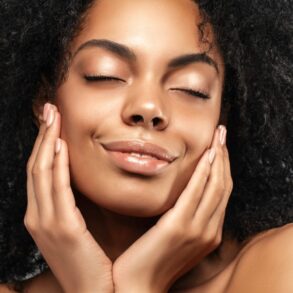- Lynn Norment, a columnist for The Commercial Appeal, is a former editor for Ebony Magazine.
All around us we see a variety of Black natural hairstyles, from braids, twists and afros to Bantu knots, cornrows and locs. At times I’m in awe of the artistry used to create these unique natural styles.
Yet, Black women, men and even children with natural hair continue to be scrutinized, criticized and even banned from some work and school environments.
Black hair continues to be the target of discrimination. Even after decades of striving for equality, diversity and inclusion, African Americans are reminded that we as a people too often are not accepted as we are and for who we are.
Equally disturbing is that straight hairstyles on Black women, whether natural or not, are much more acceptable in the work world.
Yes, relaxed hair, straight weaves, wigs, hair pieces and other Eurocentric beauty standards are acceptable, and consequently favored, by many women of color who simply want to get a job or get promoted on the job. If they seek to move up, they must fit in.
What does it mean to maintain a ‘professional appearance’?
As time has passed, natural hairstyles have evolved. Black women, and Black men and children as well, take pride in their natural hair. Our hair represents our history and has emotional significance. Many Black women no longer want to chemically straighten their hair, including me, for we now know that the chemicals damage our hair and may cause cancer. Consequently, more women choose to wear natural styles that keep their hair healthy.

Nevertheless, Black women with natural hair styles continue to find themselves stereotyped and stigmatized across the country and around the world. Of course, hair discrimination is rooted in systemic racism.
Hair policies that prohibit natural hairstyles such as braids, Bantu knots, locs and twists have been used to justify dismissing Black children from school and sending Black adults home from their jobs.
Yolanda Stephens, an attorney and founder of IPG Consultants, a human resources firm, says that as a chief human resources officer, she has encountered numerous instances of hair discrimination within the workplace.
“Often, employers implement policies under the guise of promoting a ‘professional appearance,’” says Stephens, who is also an executive coach. “To mitigate discrimination claims, I’ve consistently advised clients to adopt guidelines that grant supervisors flexibility in setting standards for their respective work environments. Prescriptive policies that merely prohibit certain hairstyles without considering the context of the role and work environment are typically outdated.”
Stephens also says that enforcement of such guidelines must be supported by “an inclusive culture that recognizes the historical and systemic impact of racism on appearance, including the origins of hair bias.”
Tennessee is among the states that passed the CROWN Act
Because hair bias persists, the Legal Defense Fund and more than 80 other community and advocacy organizations are part of the CROWN Coalition established to fight hair discrimination and push for the CROWN Act to become law and prohibit hair discrimination in all 50 states. The CROWN Act, which stands for creating a respectful and open world for natural hair, is now effective in at least 22 states, including Tennessee. It demands protection against race-based discrimination in the workplace and in K-12 public and charter schools based on hair texture and protective styles.
More than 30 additional states have introduced CROWN Act legislation or are in the process of doing so. The CROWN Act is in effect in Tennessee, where race-based hair discrimination is prohibited. Hair discrimination is not prohibited at the federal level, though legislation has been introduced.
According to the 2023 CROWN Workplace Research Study:
- Black women’s hair is 2.5 times more likely to be perceived as unprofessional
- Approximately two-thirds of Black women change their hair for a job interview. Among them, 41% changed their hair from curly to straight
- Black women are 54% more likely to feel they must wear their hair straight to a job interview to be successful
- Black women with coily/textured hair are two times as likely to experience microaggressions in the workplace than Black women with straighter hair
- More than 20% of Black women aged 25 to 34 have been sent home from work because of their hair
- Nearly half of Black women under age 34 feel pressured to have a headshot with straight hair
- Twenty-five percent of Black women believe they have been denied a job interview because of their hair
Despite changes in the law, Black hair is still targeted
Real life stories bring these points to life.
- For example, twin sisters in Massachusetts served detention when school officials determined their braids violated school policy.
- A 6-year-old student in Florida was sent home because the school’s handbook states that boys are not permitted to wear dreadlocks.
- A Black girl in Louisiana was expelled from school because her “extensions” were unacceptable under the school code. A native American 8-year-old in Kansas and a first grader in North Carolina were forced to get their braids cut.
- A recent case of hair discrimination also caught my attention and the attention of the national news as well. An 18-year-old Black male student has been banned from regular school classes since last August because his Texas school district says his hair length violates the dress code, which focuses on hair length rather than style.
This young man wears his locs neatly tied and twisted on top of his head. Yet, the school says he violates its policy because if he didn’t pin his hair up, it would fall below his shirt collar, eyebrows or earlobes. A judge ruled that the school district does not violate the new CROWN Act, which took effect in Texas last September and supposedly prohibits race-based hair discrimination.
Note: The young man’s hair does not fall below his shirt collar, etc., but might if he unpinned it.
The student’s family has filed a formal complaint with the Texas Education Agency and a federal civil rights lawsuit against the Texas governor, attorney general and the school district, alleging they failed to enforce the CROWN Act.

While the CROWN Act is a step in the right direction, it does not solve the problem of racial discrimination. That will continue to render such efforts for equality ineffective until people across the country accept African Americans and our hair as part of American life and culture. We don’t seek to be treated as special or as exceptions. We just want to be treated as the Americans we are. Hair and all.
Lynn Norment, a columnist for The Commercial Appeal, is a former editor for Ebony Magazine.
This post was originally published on this site be sure to check out more of their content.




